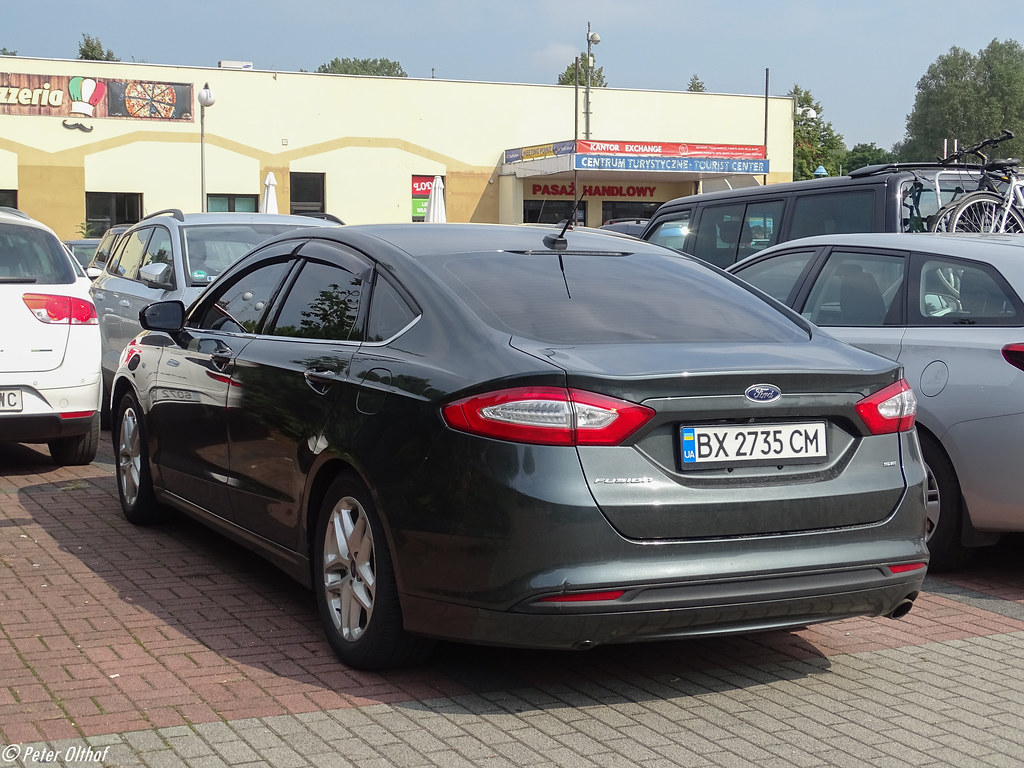Midsize sedans are some of the most popular vehicles on the road today and for good reason. They offer a blend of comfort, practicality, and fuel efficiency that make them ideal for everyday use. However, it can be very difficult to figure out which of the many available choices provides the best value for your money. Two of the most famous midsize sedans on the market are the Ford Fusion and Toyota Camry, and we’ll compare them in detail here to figure out which one is the better buy.
Introduction
A. Brief overview of the Ford Fusion and Toyota Camry
The Ford Fusion and Toyota Camry are both midsize sedans that offer a range of engine options, standard safety features, and available technology features. The Fusion was introduced in 2006 as a replacement for the Ford Taurus and has been updated several times since then. The Camry, on the other hand, has been a staple in the midsize sedan segment since it was introduced in 1982 and is now in its eighth generation.

B. Importance of value in the midsize sedan segment
When shopping for a midsize sedan, value is an important consideration. These vehicles are typically used for everyday commuting and family transportation, so it’s important to find one that offers a good balance of features, performance, and affordability.
Performance
A. Comparison of engine options
Both the Ford Fusion and Toyota Camry offer a range of engine options to suit different driving needs. The Fusion offers three gasoline engines and a hybrid option, while the Camry offers four gasoline engines and three hybrid options.
The base engine in the Fusion is a 2.5-litre four-cylinder engine that produces 175 horsepower and 175 lb-ft of torque. It is offered in the S and SE trim levels with a six-speed automatic gearbox. The SE and SEL trims come with a turbocharged 1.5-litre four-cylinder engine that produces 181 horsepower and 185 lb-ft of torque. The top-of-the-line Titanium trim comes with a turbocharged 2.0-litre four-cylinder engine that produces 245 horsepower and 275 lb-ft of torque. All three gasoline engines are available with front-wheel drive or all-wheel drive.
The base engine in the Camry is a 2.5-litre four-cylinder engine that produces 203 horsepower and 184 lb-ft of torque. Equipped with an eight-speed automatic, it comes in LE, SE, and XLE guises. The SE and XSE trims come with a 3.5-litre V6 engine that produces 301 horsepower and 267 lb-ft of torque. The Camry also offers three hybrid options, including a hybrid version of the base engine, a hybrid version of the 2.5-litre four-cylinder engine, and a hybrid version of the 3.5-litre V6 engine.
B. Fuel efficiency ratings
When it comes to fuel efficiency, both the Ford Fusion and Toyota Camry offer impressive ratings. The base engine of the Fusion achieves an EPA-estimated 23 mpg in the city and 34 mpg on the interstate, while the turbocharged 1.5-litre engine also achieves these ratings. The EPA estimates that the turbocharged 2.0-litre engine achieves 21 mpg in the city and 31 mpg on the interstate.
The EPA estimates that the Camry’s base engine will achieve 28 mpg in the city and 39 mpg on the freeway, while the V6 engine will achieve 22 mpg in the city and 33 mpg on the highway. The Camry’s hybrid versions offer even better fuel efficiency, with the hybrid version of the base engine getting an EPA-estimated 51 miles per gallon in the city and 53 miles per gallon on the highway, the hybrid version of the 2.5-litre engine getting an EPA-estimated 44 miles per gallon in the city and 47 miles per gallon on the highway, and the hybrid version of the V6 engine getting an EPA-estimated 44 miles per gallon in the city and 47 mpg on the highway.
C. Driving dynamics
Both the Ford Fusion and Toyota Camry offer agile and comfortable handling, but there are some differences between the two. The Fusion’s steering is precise and responsive, and the suspension strikes a good balance between comfort and control. The available all-wheel drive also adds a level of confidence in poor weather conditions.
The Camry’s steering is also precise and responsive, and the suspension provides a smooth and comfortable ride. The Camry’s handling is also enhanced by its low center of gravity and sport-tuned suspension on certain trims. However, some reviewers have noted that the Camry’s ride can be a bit harsh over rough roads.
Interior Features
A. Cabin space and comfort
Both the Ford Fusion and Toyota Camry offer spacious and comfortable cabins, but there are some differences in design and materials. The Fusion’s cabin is modern and stylish, with high-quality materials and a user-friendly infotainment system. The front seats are comfortable and supportive, but the rear seats can feel a bit cramped for taller passengers.
The Camry’s cabin is also modern and stylish, with high-quality materials and an easy-to-use infotainment system. The front seats are very supportive and comfortable, and the rear seats offer plenty of legroom and headroom. However, some reviewers have noted that the rear seats can be a bit flat and unsupportive.
B. Infotainment systems
Both the Ford Fusion and Toyota Camry offer a range of infotainment features, including touchscreens, smartphone integration, and available premium audio systems. The Fusion’s SYNC 3 infotainment system is user-friendly and responsive, with Apple CarPlay and Android Auto compatibility on certain trims. The available premium audio system from Sony is also a standout feature.
The Camry’s Entune 3.0 infotainment system is also user-friendly and responsive, with Apple CarPlay and Android Auto compatibility on most trims. The available JBL premium audio system is a standout feature, offering crisp and clear sound quality.
C. Available features
Both the Ford Fusion and Toyota Camry offer a range of available features, including heated and ventilated front seats, dual-zone automatic climate control, and a panoramic sunroof. The Fusion also offers a heated steering wheel and a 12-speaker premium audio system from Sony. The Camry offers a head-up display, wireless device charging, and a bird’s eye view camera system.
Safety Features
A. Standard safety features
Both the Ford Fusion and the Toyota Camry come standard with cutting-edge safety technology like forward collision warning, AEB, lane departure warning, and adaptive cruise control. The Fusion also comes standard with a rearview camera and MyKey, which allows you to set limits on speed and audio volume for secondary drivers.
B. Advanced safety features
Both the Ford Fusion and Toyota Camry offer a range of available advanced safety features, including blind spot monitoring, rear cross-traffic alert, and automatic high beams. The Fusion also offers a 360-degree camera system and automatic parking assist, while the Camry offers a surround-view camera system and rear pedestrian detection.
C. Crash test ratings
The Ford Fusion and Toyota Camry have both received high marks in crash tests conducted by NHTSA (the National Highway Traffic Safety Administration) and IIHS (the Insurance Institute for Highway Safety). Both vehicles have earned top ratings in all major crash categories, including frontal, side, and rollover crashes.
Pricing
A. Ford Fusion
The Ford Fusion has a starting price of $24,165 for the base S trim with the 2.5-litre engine and front-wheel drive. The mid-level SE trim with the same engine starts at $24,765, while the top-of-the-line Titanium trim with the 2.0-litre engine and all-wheel drive starts at $38,590.
B. Toyota Camry
The Toyota Camry has a starting price of $25,045 for the base L trim with the 2.5-litre engine and front-wheel drive. The mid-level LE trim with the same engine starts at $26,680, while the top-of-the-line XSE trim with the V6 engine starts at $35,545.
C. Value for money
When it comes to value for money, both the Ford Fusion and Toyota Camry offer competitive pricing and a range of features for the money. However, the Fusion has a slight advantage in terms of price, with a lower starting price for the base model and a higher maximum price for the top-of-the-line model. The Camry, on the other hand, offers better fuel efficiency and a more spacious rear seat.
Videos: 2020 Toyota Camry LE vs. 2020 Ford Fusion SE
Conclusion
Both the Ford Fusion and Toyota Camry are excellent midsize sedans that offer a range of features, impressive performance, and strong safety ratings. Ultimately, one’s own preferences and priorities must guide their decision between the two. If you prioritize fuel efficiency, a spacious rear seat, and a modern infotainment system, the Toyota Camry may be the better choice for you. If you prioritize agile handling, all-wheel drive, and a lower starting price, the Ford Fusion may be the better choice for you. Ultimately, both models offer excellent value for money and are worth considering for anyone in the market for a midsize sedan.












